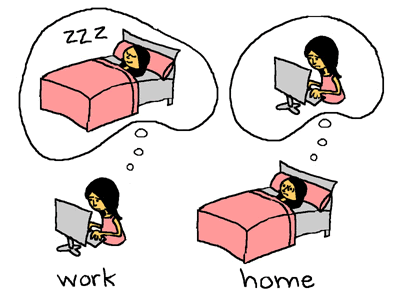
Stress and sleep are strongly bound together. Lack of sleep can cause stress and stress can be the cause for lack of sleep. It is important to find ways to manage stress and sleep because this combination can cause serious problems to our mental and physical health.
Stress is how the body and brain reacts in any new or threatening emotional (exciting) situation. Stress is not always harmful but it is sometimes helpful because it gives you more energy which may help you experience physical challenges, solve problems and reach / achieve objectives / goals.
When stress continues without interruption for long periods can cause insomnia (lack of sleep), headaches, back pain, anorexia, fatigue, depression and other physical symptoms.
Problems with lack of sleep and stress
It is known that lack of sleep (insomnia) causes problems in thinking and concentration. It is also capable of causing stress and serious health problems.
First of all, it should be noted that chronic lack of sleep increases the risk of type 2 diabetes. This increases cortisone which is a stress hormone that regulates glucose in the blood. The prolonged lack of sleep (insomnia) makes your body to constantly inject cortisone in the blood. The cortisone in term increases blood glucose. This obliges the body to express and inject in the blood more and more insulin in an attempt to reduce blood glucose.
If this situation lasts over time, the gradual increased production of insulin leads to insulin resistance. The resistance to insulin may lead to type 2 diabetes. At the same time the increase of insulin in the blood promotes the storage of fat in the body thereby increasing the risk of obesity.
Also, another adverse effect of stress and lack of sleep is the weakening of the immune system by making people more prone to infections and colds.
Finally, chronic sleep deprivation speeds up the mechanisms of ageing. When someone does not sleep enough the brain does not produce normal amounts of hormones but it produces quantities similar to those of elderly people.
In brief the biggest risks brought by lack of sleep and stress are:
- Type 2 Diabetes
- Obesity
- Infections
- Cancer
- Ageing
- Reducing mental capabilities and performance
- Accidents and road accidents
Ways to manage stress and sleep
- First, make sure you are sleeping enough. This may encourage your knowledge of how to relax. The hours of sleep needed by someone differ from person to person but it is true that during periods of stress we need more sleep than when life runs smoothly. Keep in mind that if you sleep too much, this can make you feel so bad as if you sleep very little.
- The problem of sleep is a common problem of those who feel tension and stress, but do not worry unnecessarily for some bad nights – you can usually replace them with a good night sleep.
- If you experience difficulty in sleeping reduce the total daily consumption of tea, coffee and light beverages containing caffeine.
- One way to cut down on caffeine for heavy coffee drinkers is to drink good quality decaffeinated coffee.
- Take your dinner early and avoid having in the afternoon tea or coffee unless it does not contain caffeine. Do not go to bed with empty or full stomach. Hunger creates stress and on the other hand a full stomach will make you feel uncomfortable and difficult to sleep.
- Drink a glass of milk low in fat before you go to bed. The amino acid (tryptophan) in milk will help you sleep better.
- Try to tire yourself physically by engaging in a pleasant exercise. For example a quick walk or gardening before going to bed.
- Take a bath and try «emptying» your mind before going to bed to read or watch TV. Do not watch television programs that arouse or cause fear or violent.
- Do not employ your brain with problems – they can wait until the morning!
- Do not take to bed to read things that are relevant to your job.
- If you can not sleep or if you get up in the middle of the night and you can not fall asleep again, get up make a drink (prefer something with hot milk and no tea or coffee). Do some work that requires no thought or effort such as arranging the drawer of your socks or your toolbox and then return to your bed.
- Try to avoid taking sleeping pills unless it is only for one or two nights to break the continuity of insomnia. The pills may make you feel tired in the morning. You may also develop an unwanted habit which will cause you even more stress.
- To be able to sleep normally try to go to bed faster than you normally do. Use a little time from the time you spend to relax in front of the television to increase the hours of sleep that you so much need.
- Keep your bedroom temperature cool but not cold. Most people find it difficult to sleep in a room that is too hot.
- Try to go to bed and get up at the same time every day, even on weekends.
- A proper pillow can greatly assist in having a quality sleep. Make sure that you are comfortable with your pillow and you are not waking up with neck pains and headaches.
- If you still cannot sleep enough hours during the night try to take a power nap during the day that will help you feel better.
